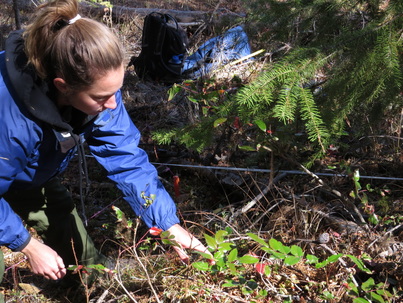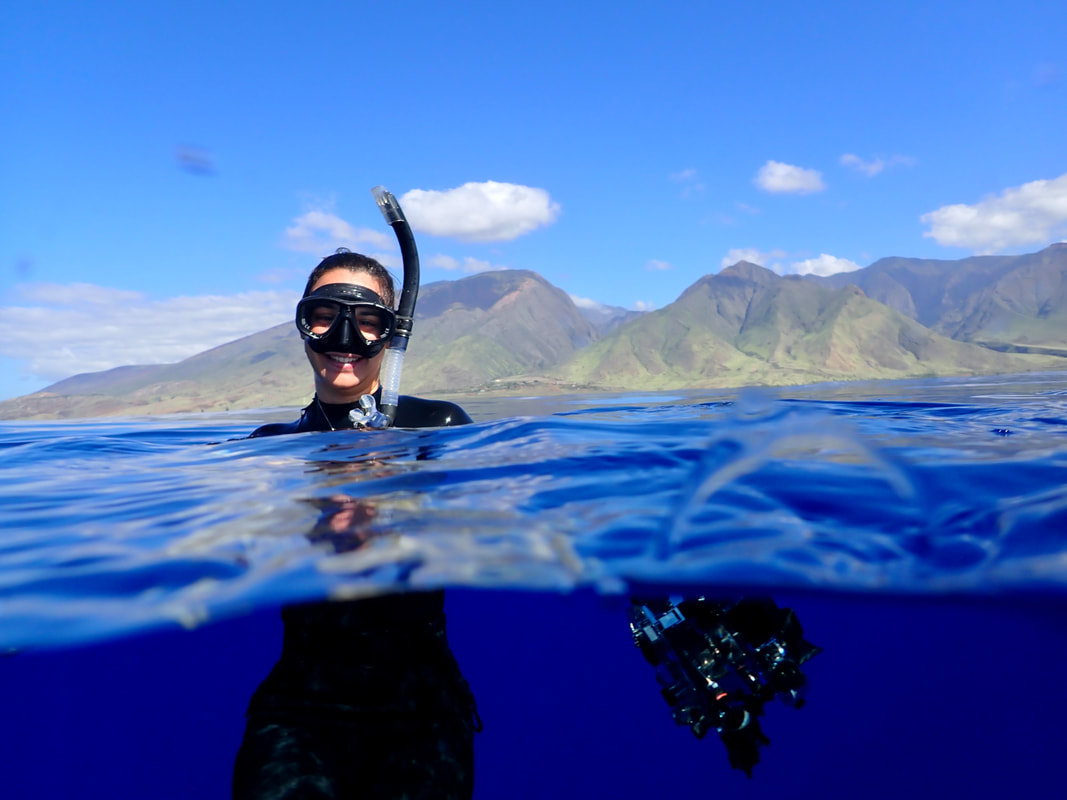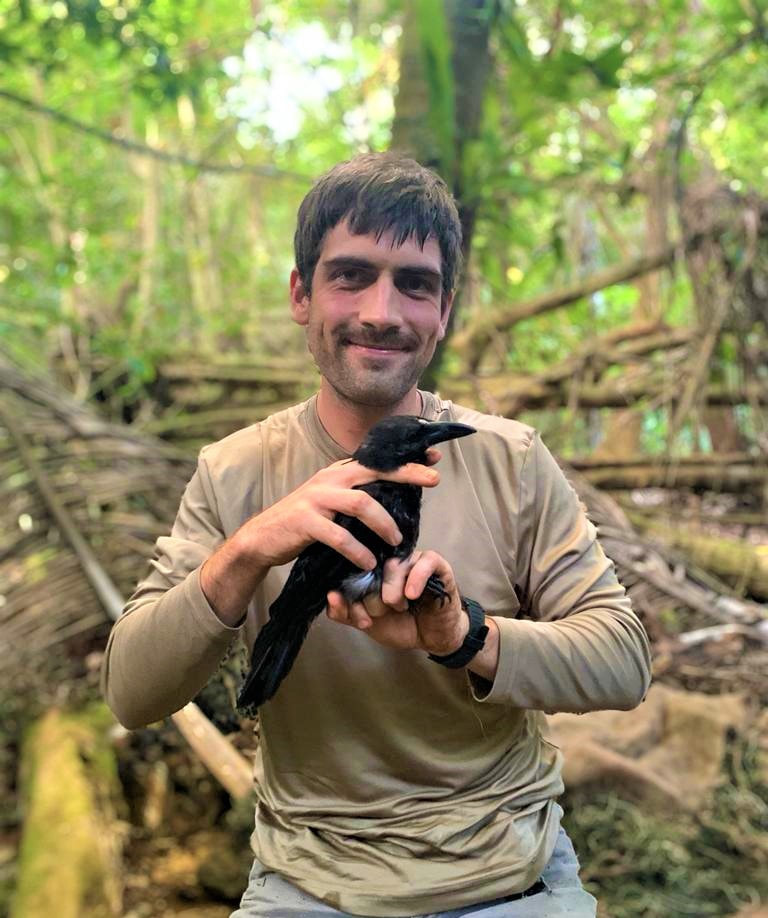|
Apryle Craig
I earned a BS in BioEngineering from the University of Pittsburgh and masters in Ecology at Colorado State University. I am interested in trophic cascades. During my master's research, I worked with Dr. Liba Pejchar to investigate the impacts of elk browsing and riparian willow restoration on bird communities in Rocky Mountain National Park. Throughout my masters, I also worked at the national park supervising data collection for the park's Elk and Vegetation Management Plan, overseeing vegetation monitoring, elk exclosures, and elk counts. My PhD research with Dr. Aaron Wirsing is exploring possible trophic cascades that may be occurring with the recolonization of grey wolves in north central Washington. I am interested in learning how this coursing predator may influence deer foraging behavior, diet composition, and plant browse which may lead to changes in vegetation structure or composition. I am passionate about citizen science, environmental education, and science communication.
Website: http://apryledcraig.wordpress.com/ |
|
Dr. Frances Farabaugh
I am a post-doctoral scholar and marine ecologist with a specific interest in the behavioral ecology of predators. My dissertation under the supervision of Dr. Michael Heithaus examined the factors that affect the variation in shark abundance and community composition in French Polynesia and sought to better understand the ecological importance of sharks and large bony fish (e.g. groupers, jacks) in coral reef systems. This work is particularly important in the light of dramatic worldwide declines in marine predator populations, especially sharks. As the world’s largest shark sanctuary, with substantial gradients in both anthropogenic and environmental factors, French Polynesia offers a perfect model system to answer these questions. My work at UW will continue and expand this research, which is an important step to elucidating the importance of sharks in structuring coral reef ecosystems.
I graduated with a PhD in Biology from Florida International University in 2023, and a B.S. in 2014 from Humboldt State University with a double major in Marine Biology & Zoology and a minor in Scientific Diving. My passion for ecology has taken me all over the world, including research internships with STRI in Panama and OTS in Costa Rica, work as an Aquanaut at Aquarius Reef Base, and work with the Global FinPrint Program in French Polynesia. In addition to my academic work, I enjoy sharing my fascination with sharks and science with others. I have been featured on National Geographic‘s Shark Fest and participate in several quirky science communication podcasts, including as a co-host of the marine science podcast Ocean Science Radio, and a cast member of the marine biology & conservation themed Dungeons & Dragons podcast Dugongs and Seadragons. |
|
Dylan Hubl
I am a Masters student investigating the status of the Pacific marten population on the Olympic Peninsula of Washington. I am co-advised by Dr. Aaron Wirsing and Dr. Robert Long and will be collaborating with staff from the National Park Service, U.S. Forest Service, and the Woodland Park Zoo. Pacific marten historically occupied the forests of the Olympic Peninsula from the coast to the subalpine. However, in recent decades intensive camera studies have resulted in few detections of martens, of which all have been limited to high elevation forests. I will be surveying these high elevation forests to gather more complete data on marten resource selection, population distribution and connectivity as well as assessing population status via genetic data.
I earned a Bachelor’s degree from the University of Nebraska in 2013 and have held a wide variety of technician/research positions since then. Prior to entering the Predator Ecology Lab, I spent seven years working for the University of Washington on Dr. Renee Ha’s Rota Avian Behavioral Ecology Project on the island of Rota, CNMI. As a staff member on that project, I helped lead research on the critically endangered Mariana crow. I am passionate about the conservation of threatened and endangered species and conducting applied research aimed at understanding causes of decline and how to better manage species in decline. |



